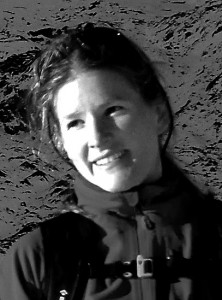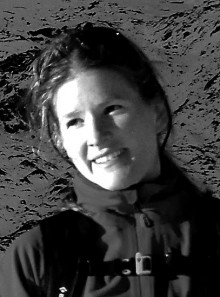Thursday, August 7, 7 p.m., San Juan Island Library
— from Julia Vouri ––
 Physical Scientist from Mount Rainier National Park will discuss how Climate Change Impacts Glaciers on August 7 at the San Juan Island Library
Physical Scientist from Mount Rainier National Park will discuss how Climate Change Impacts Glaciers on August 7 at the San Juan Island Library
Learn how glaciers in the Pacific Northwest have changed over the last 100-150 years in a presentation by Mount Rainier National Park Physical Scientist Rebecca Lofgren at 7 p.m., Thursday, August 7 at the San Juan Island Library.
Lofgren will focus on how changes have been measured and documented on glaciers within Olympic National Park, North Cascades National Park and Mount Rainier National Park, and discuss the impacts of those changes.
She has been working at Mount Rainier National Park for more than 12 years as part of the National Park Service Inventory and Monitoring Program, and is specifically involved with the long-term monitoring of glaciers, climate, mountain lakes and air quality at Mount Rainier National Park. She also travels regularly to Olympic and North Cascades national parks.
This presentation is the sixth free program in The Climate Action Imperative: Understanding Impacts & Making Choices, a summer/fall speakers’ series featuring eight experts on Climate Change—from oceanographers to botanists, biologists to meteorologists. The series provides a current look at climate change and what actions are warranted by individuals as well as by our state and nation. For information about Lofgren’s program and the series, call 360-378-2240, ext. 2227 or 360-378-6690, or visit our web sites at www.nps.gov/sajh or www.madrona.org.
Lofgren has an MS in Environmental Science and Engineering from the Oregon Graduate Institute of Science and Technology, a BS in Ecology and Evolution and a BA in Environmental Studies from the University of California, Santa Barbara.
Three times a year, Lofgren and other National Park Service researchers haul more than 100 pounds of measuring instruments and survival supplies to the upper elevations of glaciers in the North Cascades and Mount Rainier national parks to collect measurements for the glacier monitoring pro¬gram of the North Coast and Cascades Network. The program is part of an ongoing effort to track the conditions of Pacific Northwest glaciers through consistent measurements and photographs.
Glaciers are one of the most important vital signs to monitor for an understanding of ecosystem and park health. Since the program began at North Cascades National Park in 1993, the park’s glaciers have lost between 10 and 15 percent of their total volume. The glaciers monitored at Mount Rainier have lost more of their total volume in half that time.
“If the public could actually see the measurements we’re seeing and see how the glaciers change every year, how the terminus [the bottom portion] some¬times looks like it’s falling apart or the snow field looks like it’s rotting, it just becomes so much more real,” said Lofgren.
As with all talks in the series, Lofgren’s presentation will be followed by a discussion.
Series co-sponsors are: San Juan Island National Historical Park, Madrona Institute, San Juan Islands Conservation District, The League of Women Voters of the San Juans, San Juan Island Library, San Juan Nature Institute, San Juan County Marine Resources Committee, Northwest Straits Foundation, Stewardship Network of the San Juans, Washington State University Extension Service, San Juan Island Grange #966 and the Agricultural Resources Committee of the San Juan Islands.
The next scheduled speaker is Dr. Steven Fradkin, Coastal Ecologist and Marine Resources Manager, Olympic National Park, National Park Service. The program is scheduled at 7 p.m., August 20, at the San Juan Island Library.
**If you are reading theOrcasonian for free, thank your fellow islanders. If you would like to support theOrcasonian CLICK HERE to set your modestly-priced, voluntary subscription. Otherwise, no worries; we’re happy to share with you.**








